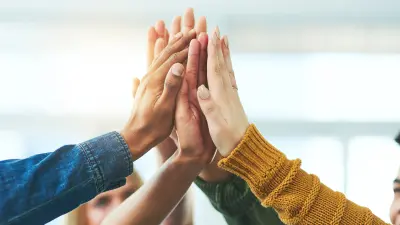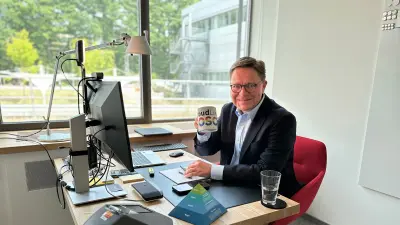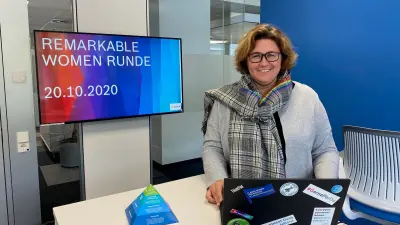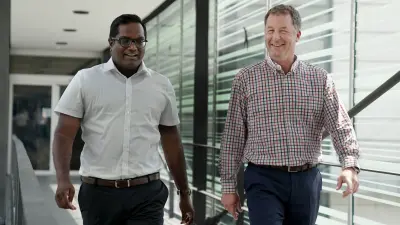United in diversity
How Bosch and its associates stand up against racism and discrimination

Diversity is an integral part of the Bosch corporate strategy. The term “diversity” is not limited to different cultural backgrounds, genders, or age groups. It also encompasses ways of thinking, experiences, perspectives, and lifestyles. Some examples how Bosch associates stand up for diversity and tolerance in their day-to-day work.
Diversity: Part of the Bosch corporate values
Member of the Board of Management Stefan Grosch views this topic as especially important in his role as Director of Industrial Relations. People from more than 150 different countries work together at Bosch worldwide. As a result, the company has been working to fight unconscious bias and promoting reflection on prejudice and stereotypes for years. “We respect and defend the personal dignity of each individual. We do not tolerate any discrimination, bullying or harassment of our fellow associates, and encourage diversity. We actively cultivate an environment where inclusivity thrives and where the richness of our diverse perspectives fosters innovation, empathy, and mutual understanding. Together, we strive to create a world where discrimination and racism is not just condemned, but eradicated, ensuring every team member can flourish without bias,” he notes.


Stefanie Jekal’s job title is Global Diversity Manager. Her responsibilities include making sure associates are aware of their prejudices and unconscious biases and consider them from a critical standpoint, for example during workshops. “No one would admit to being a racist, and no one wants to be one,” she says. But if a person does not have much contact with people from other cultures, there is often a simple lack of understanding. “When that happens, you can see situations in which someone unconsciously and inadvertently discriminates against international colleagues.” And that, she says, makes it even more important to cultivate that kind of understanding. The fact that Bosch, as an international corporate group, focuses a great deal on diverse teams is a step in the right direction. When problems do arise, Jekal and the approximately 70 regional diversity coordinators around the world serve as points of contact for those affected.
“The most important thing is to listen first. Depending on the case, one thing I do is advise people and work with them to come up with strategies for how they can respond,” she explains. If necessary, she can also accompany them to meetings. “It’s definitely important to take the matter seriously and act to the affected person’s benefit.” There are also numerous international diversity networks, such as Chinese@bosch, afric@bosch, and the Turkish Forum, that give people a place to share their stories and concerns.
“Our networks are so important because they help foster better understanding for other cultures,” Jekal says. Of course, the networks also exist so people can talk to each other. “But they also organize open dialogue events, which often contribute to a better understanding of each other. What is more, networks are always our ear to the ground in the Bosch community.”
“We respect and defend the personal dignity of each individual. We do not tolerate any discrimination, bullying or harassment of our fellow associates, and encourage diversity.”
Taking action against discrimination, harassment and bullying
Bosch investigates all possible cases of discrimination, harassment and bullying. If associates feel they have been discriminated against, they have various options for reporting the issue. They can contact their executives, the HR team, and the worldwide diversity coordinators. In Germany, for example, it is also possible to approach the social counseling team or the employee representation. Reports of possible misconduct can also be made confidentially online via the Bosch incident reporting system. The mailbox in this system can also be used to exchange information anonymously with the compliance organization.


